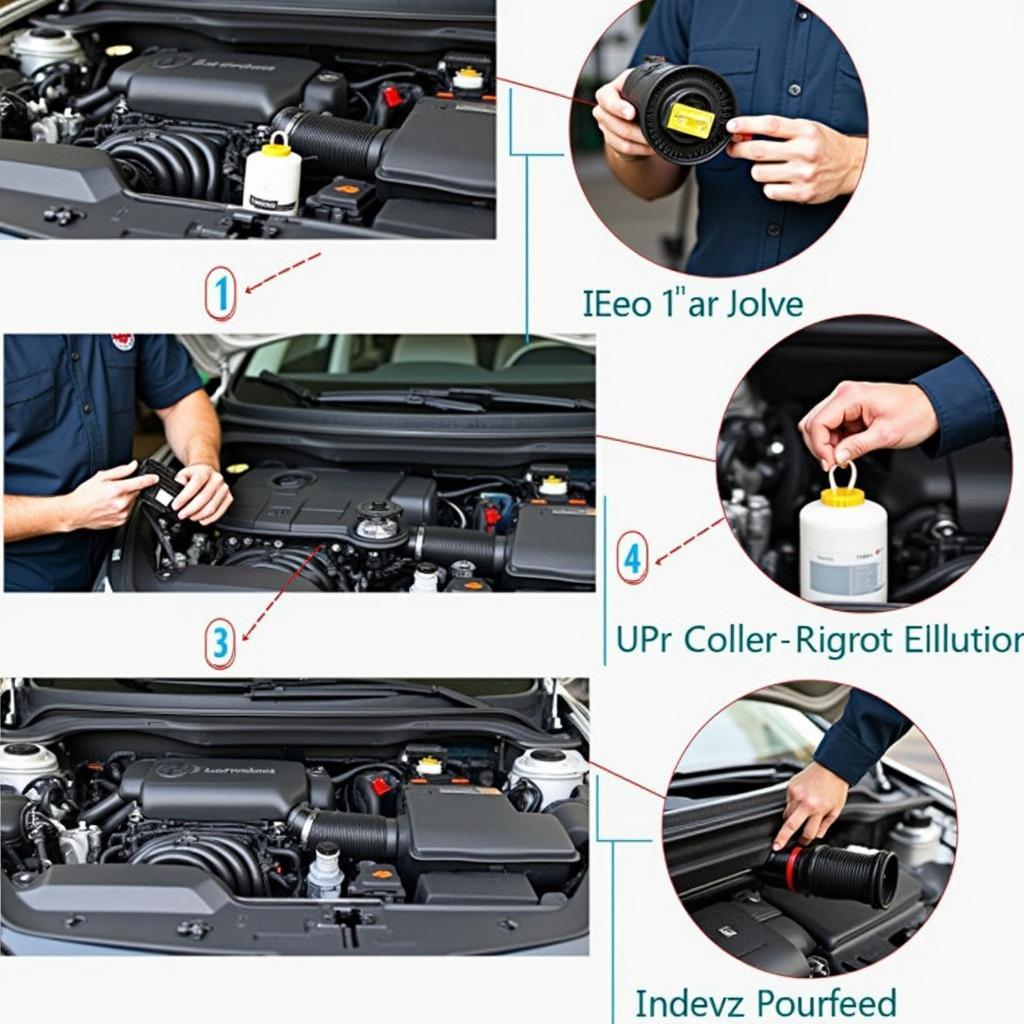Maintaining your new car’s pristine condition and ensuring its longevity depends heavily on adhering to a proper service schedule. A New Car Service Schedule isn’t just about changing the oil; it’s a comprehensive plan designed to keep every component functioning optimally. This guide delves deep into understanding the importance of a new car service schedule and provides valuable insights for new car owners. Following a well-structured maintenance plan will not only prevent costly repairs down the road but also contribute to a safer and more enjoyable driving experience.
Why is a New Car Service Schedule Important?
A new car, despite its seemingly perfect condition, requires regular maintenance. This ensures that all parts are working as intended and helps identify potential issues before they become major problems. Ignoring your new car service schedule can lead to premature wear and tear, impacting performance, fuel efficiency, and ultimately, its resale value. A properly maintained vehicle retains its value significantly better than one with a neglected service history. A well-maintained car also offers a more reliable and safer driving experience.
 Importance of Following a New Car Service Schedule
Importance of Following a New Car Service Schedule
Regular servicing identifies minor issues before they escalate. For instance, a slightly worn brake pad detected during a routine service can be easily replaced, preventing more extensive damage to the rotor and caliper. This proactive approach not only saves you money in the long run but also ensures your safety on the road. Similar to the new car service schedule km, this focuses on mileage-based maintenance.
Deciphering Your New Car Service Schedule
Your car’s manufacturer provides a detailed service schedule in the owner’s manual. This schedule outlines specific maintenance tasks based on mileage intervals or time elapsed, whichever comes first. Understanding this schedule is crucial. It typically includes services like oil changes, filter replacements, fluid top-ups, tire rotations, and inspections of various systems, such as brakes, steering, and suspension. It is tailored specifically for your car’s make and model, considering factors like engine type and driving conditions.
What Does a New Car Service Schedule Typically Include?
A typical new car service schedule includes several key components. Understanding these components empowers you to make informed decisions about your car’s maintenance:
- Oil Changes: Regular oil changes are essential for lubricating the engine and preventing excessive wear.
- Filter Replacements: Replacing air, oil, and cabin air filters ensures clean air intake and proper engine function.
- Fluid Top-ups: Maintaining correct levels of brake fluid, coolant, and power steering fluid is crucial for optimal performance.
- Tire Rotations and Pressure Checks: Regular tire rotations promote even wear, extending tire life and improving handling. Maintaining correct tire pressure ensures optimal fuel efficiency and safety.
- Brake Inspections: Regular checks of brake pads, rotors, and calipers are vital for safe and efficient braking.
- Belt and Hose Inspections: Inspecting belts and hoses for wear and damage can prevent unexpected breakdowns. A new car service schedule for Hyundai can be accessed on hyundai new car service schedule.
What if I Don’t Follow the Recommended Schedule?
Failing to adhere to the recommended new car service schedule can void your warranty. It can also lead to costly repairs down the line. Regular maintenance is an investment that protects your car’s value and performance. Skipping services might seem like a way to save money initially, but it can lead to significantly higher expenses in the future. The xl6 new car service schedule offers a good example of a manufacturer-specific schedule.
How Often Should I Service My New Car?
The frequency of your new car service depends on various factors, including the make and model of your car, your driving habits, and the operating conditions. Refer to your owner’s manual for the manufacturer’s recommended service intervals. Generally, most new cars require servicing every six months or every 5,000 to 7,500 miles. Modern cars often have built-in sensors that alert you when service is due. However, it’s always recommended to consult your owner’s manual for the specific schedule for your vehicle. Check out yearly car service for just rs 3500 for affordable options.
Finding a Reliable Car Service Provider
Choosing a reliable and trustworthy car service provider is essential. Look for certified mechanics with experience working on your car’s make and model. Read online reviews and ask for recommendations from friends and family. A good service provider will explain the necessary repairs and provide transparent pricing. They will also keep a detailed record of your car’s service history, which can be valuable when selling your car. For reliable service options, you may consider jet car services.
Conclusion
A new car service schedule is a crucial aspect of car ownership. Following the recommended schedule ensures optimal performance, prolongs the lifespan of your vehicle, and maintains its resale value. Understanding your car’s specific needs and finding a reliable service provider are key to a smooth and enjoyable driving experience. Don’t neglect your car’s maintenance; it’s an investment that pays off in the long run.
FAQ
- What is included in a basic car service?
- How often should I change my car’s oil?
- How do I know when my car needs servicing?
- What are the signs of a failing alternator?
- Why is tire rotation important?
- What are the benefits of regular car servicing?
- How can I find a reliable car mechanic?
Need further assistance? Contact us via WhatsApp: +1(641)206-8880 or Email: [email protected]. Our 24/7 customer service team is ready to help.

